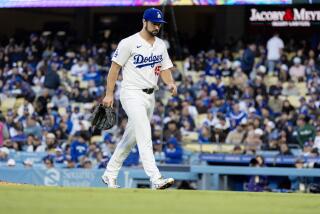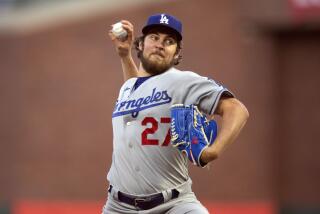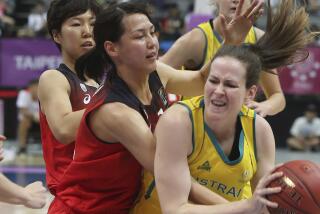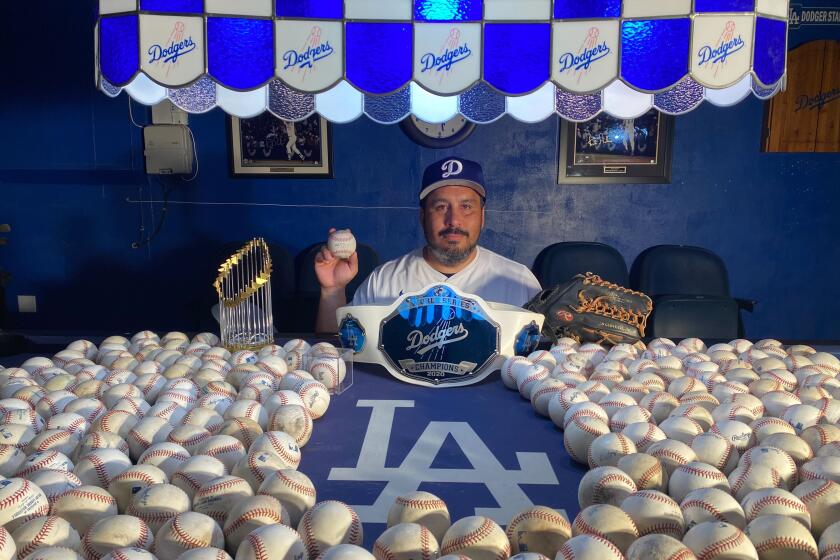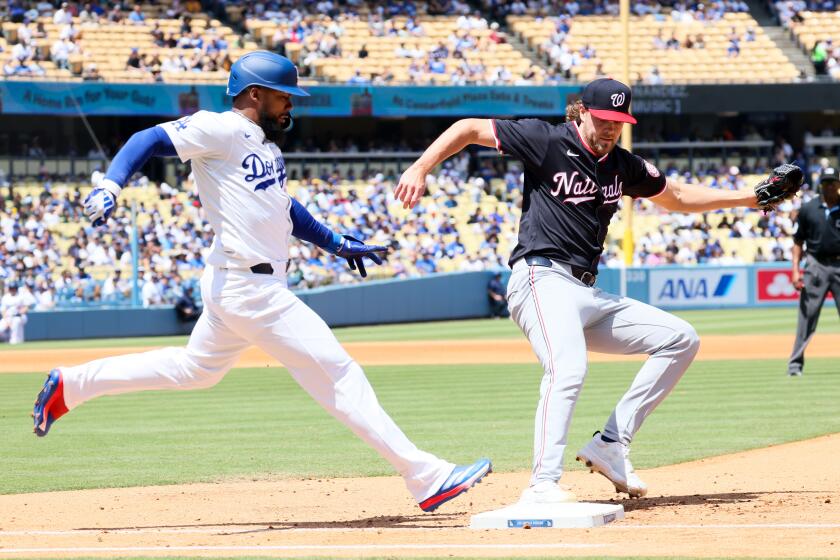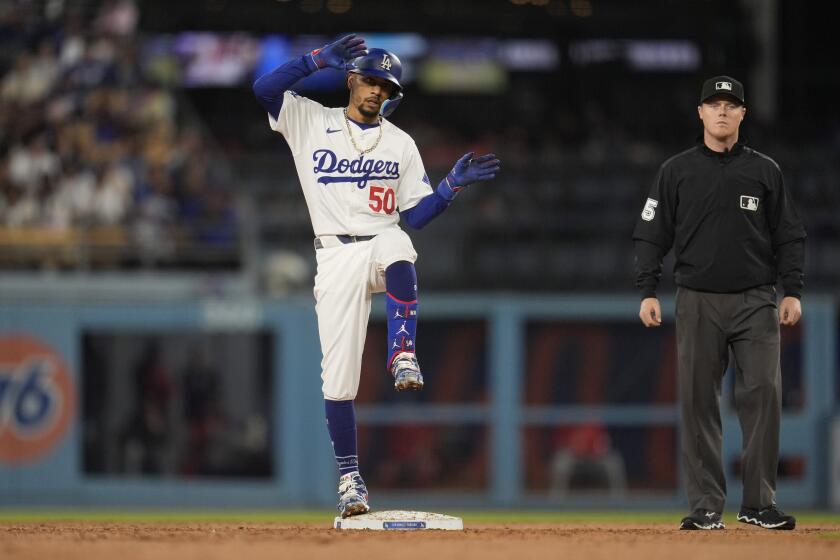Glaus could be a costly answer
Come home, Troy Glaus.
The Dodgers need you. The Angels need you, again. If you can fix that power outage this summer, you might get to ride in another parade this fall.
It sounds too good to be true. Alas, it probably is.
The Blue Jays are going nowhere this season, with or without Glaus. The Dodgers and Angels desperately need a big bat, maybe not to win in September but definitely to win in October, with third base the most logical fit for both teams.
And Glaus, a former UCLA star and the 2002 World Series MVP for the Angels, remains an elite slugger. He hit 38 home runs last year and he’s on pace for 31 this year, with an on-base plus slugging percentage greater than anyone on the Dodgers or Angels, except Vladimir Guerrero.
So let’s make a deal ... er, not so fast.
The Blue Jays trail the Red Sox by 10 games in the American League East, but they’re seven games back for the wild card. Not insurmountable, at least not to the point of giving up before Memorial Day, even with ace Roy Halladay recovering from an appendectomy and closer B.J. Ryan out for the season after elbow surgery.
Toronto General Manager J.P. Ricciardi did not return a call, but another major league executive who spoke with him last week said he was not ready to trade Glaus. The agent for Glaus, Mike Nicotera, said the Blue Jays have not even broached the possibility. Glaus would have to approve any trade.
“I would be surprised if Troy was anywhere but in a Blue Jay uniform, not only now but in the future,” Nicotera said. “He likes it there. I know the feeling is mutual.”
No matter how much the Blue Jays like Glaus, however, they might decide to solicit offers for him. The Angels rank last in the American League in home runs, the Dodgers 14th among 16 National League teams.
Said Angels General Manager Bill Stoneman: “Right now, we’re getting production ahead of Guerrero. We need to get a little more production behind him.”
Said Dodgers General Manager Ned Colletti, in his second year: “Since we’ve got here, I’ve thought we needed more power. You can’t just make it appear.”
To make Glaus appear here, the cost would be high, in money and in players. His contract calls for salaries of $10.75 million this season, $12.75 million next season and a player option at $11.25 million in 2009.
Assume, for the moment, that the Blue Jays split this year’s salary with whatever team might acquire him. If he asks for another such player option to waive his no-trade clause -- he got the original option in exchange for approving his trade from Arizona to Toronto -- a team could be liable for $40.6 million through 2010, when Glaus will be 34.
In today’s market, that contract is not outrageous for a player virtually guaranteed to hit 30 home runs if he is sound. Glaus sat out two weeks this season because of a bone spur in his left foot, his first stint on the disabled list in three years.
But here’s the $40-million question: Do you commit that money to Glaus when you have a young player ready at third base, or do you let the youngster play -- at $4 million for four years -- and spend the rest elsewhere?
The Angels answered that question three years ago, when they bid farewell to Glaus and handed third base to minor league home run king Dallas McPherson. But McPherson couldn’t stay off the disabled list, and the power Glaus supplied never has been replaced.
The Dodgers face that question today, with Andy LaRoche playing the part of McPherson. They called up LaRoche two weeks ago, and they’ll give him a look before doing anything.
“Some of it is about patience,” Colletti said, “coupled with a player getting an opportunity.”
The Blue Jays, targeting youngsters for the infield corners and the starting rotation, would be happy to take LaRoche and, say, Hong-Chih Kuo for Glaus. Remember, though, that Colletti has yet to trade one of the jewels from the Dodgers’ farm system -- LaRoche, Matt Kemp, James Loney, Scott Elbert, Chad Billingsley and Clayton Kershaw.
From the Angels, the Blue Jays would start by asking for infielder Brandon Wood, the Angels’ top prospect. The Angels would refuse, but they could counter with Ervin Santana and Matt Brown, another triple-A infielder with a lively bat. They might also ask Glaus whether he would move to first base or designated hitter once Wood arrives in Anaheim.
Stoneman spent all winter hoarding pitchers rather than trading one for a hitter, and he has yet to make a midseason trade in his eight years as the Angels’ general manager.
But owner Arte Moreno did promise a big bat, and Stoneman would not dismiss the idea of trading a young pitcher for a veteran hitter.
“If veteran means short-term and young means long-term, not likely,” he said. “If there’s somebody out there who can help in the longer term and we’ll give up some solid pitching, there might be an equitable deal.”
Quality costs, and Glaus is hitting .310. The price would not be so painful for two other third basemen, but Scott Rolen is hitting .208 and Morgan Ensberg .214.
No pain, no gain? Check back in October.
*
More to Read
Are you a true-blue fan?
Get our Dodgers Dugout newsletter for insights, news and much more.
You may occasionally receive promotional content from the Los Angeles Times.
